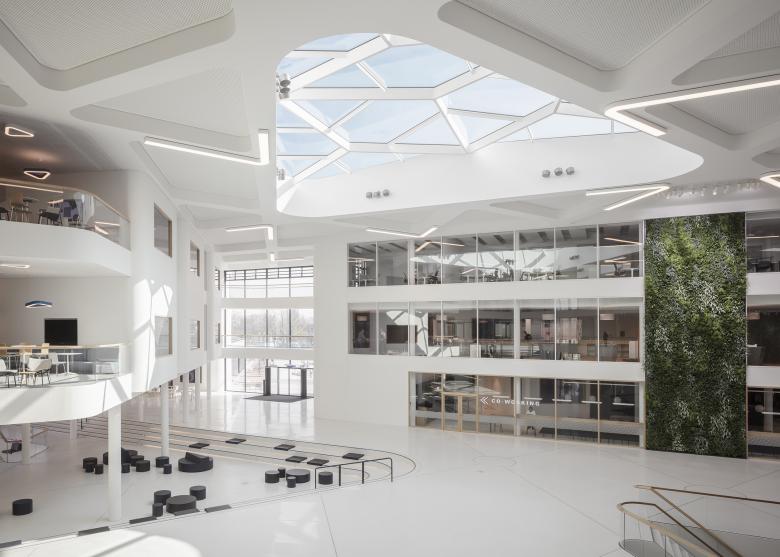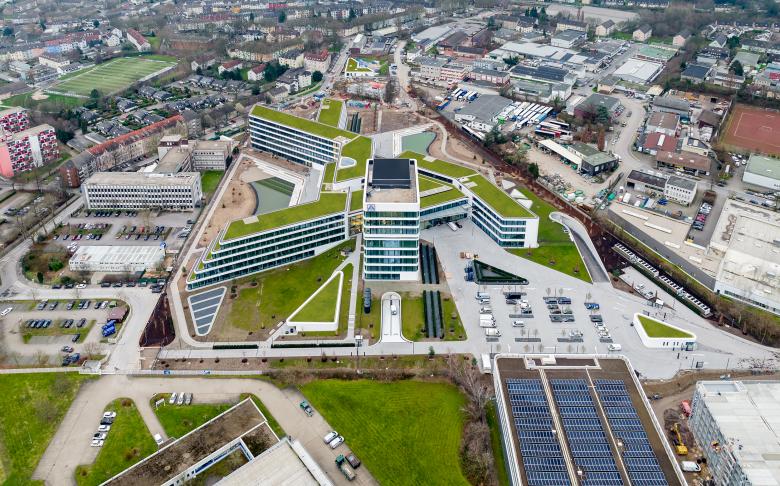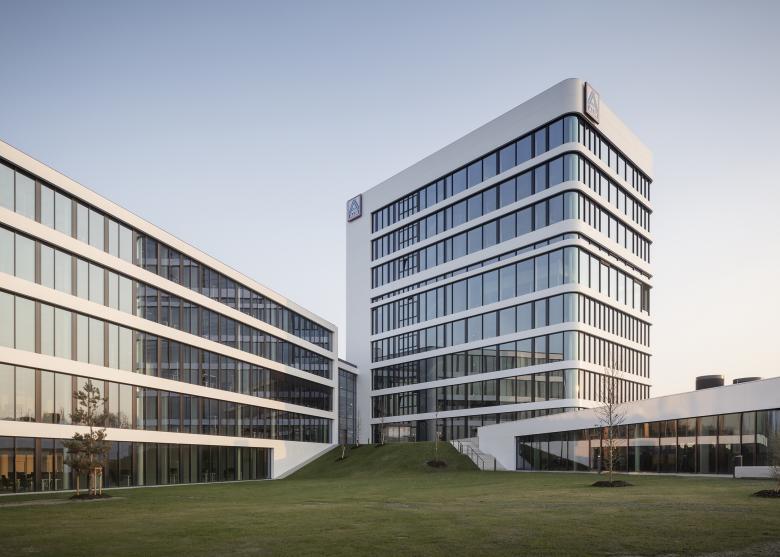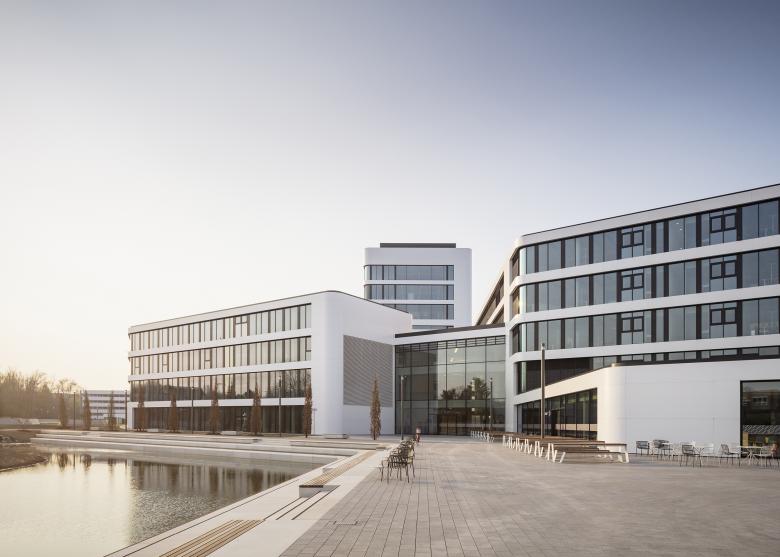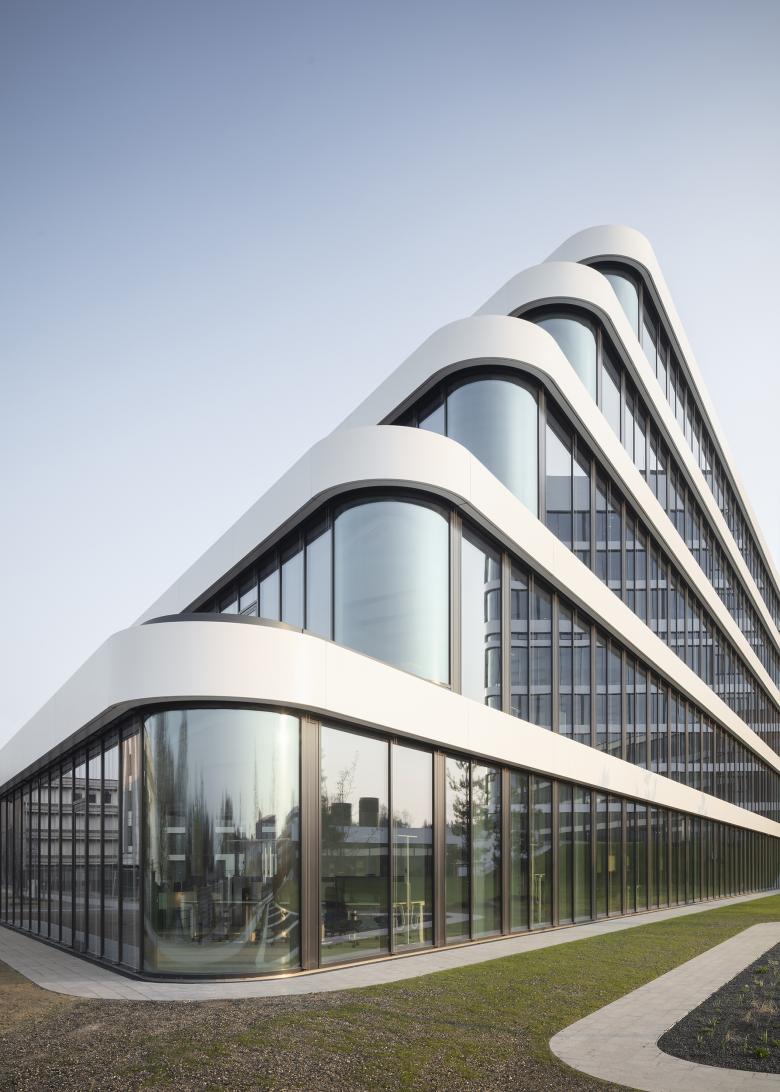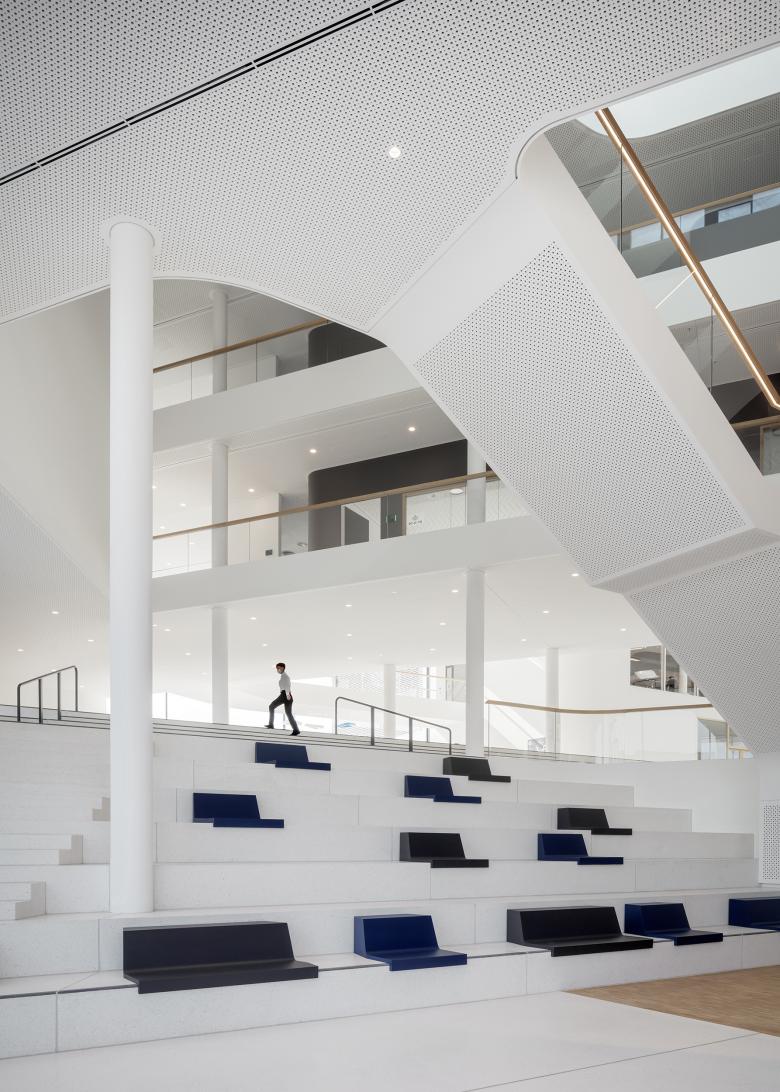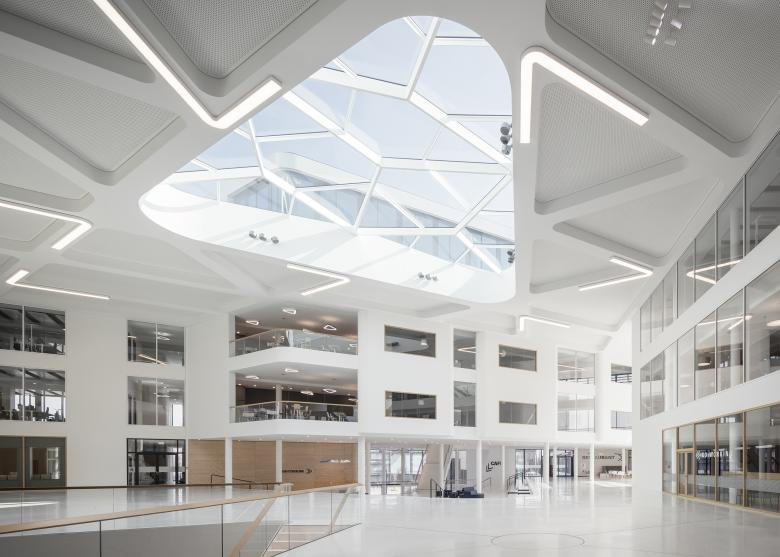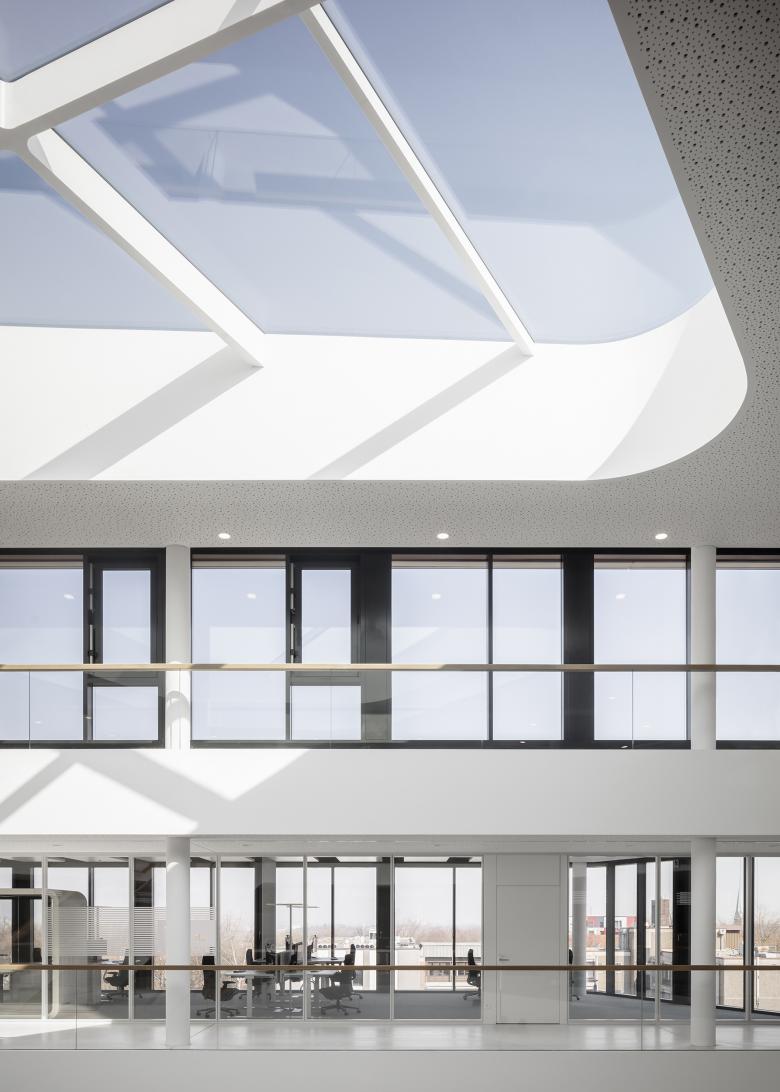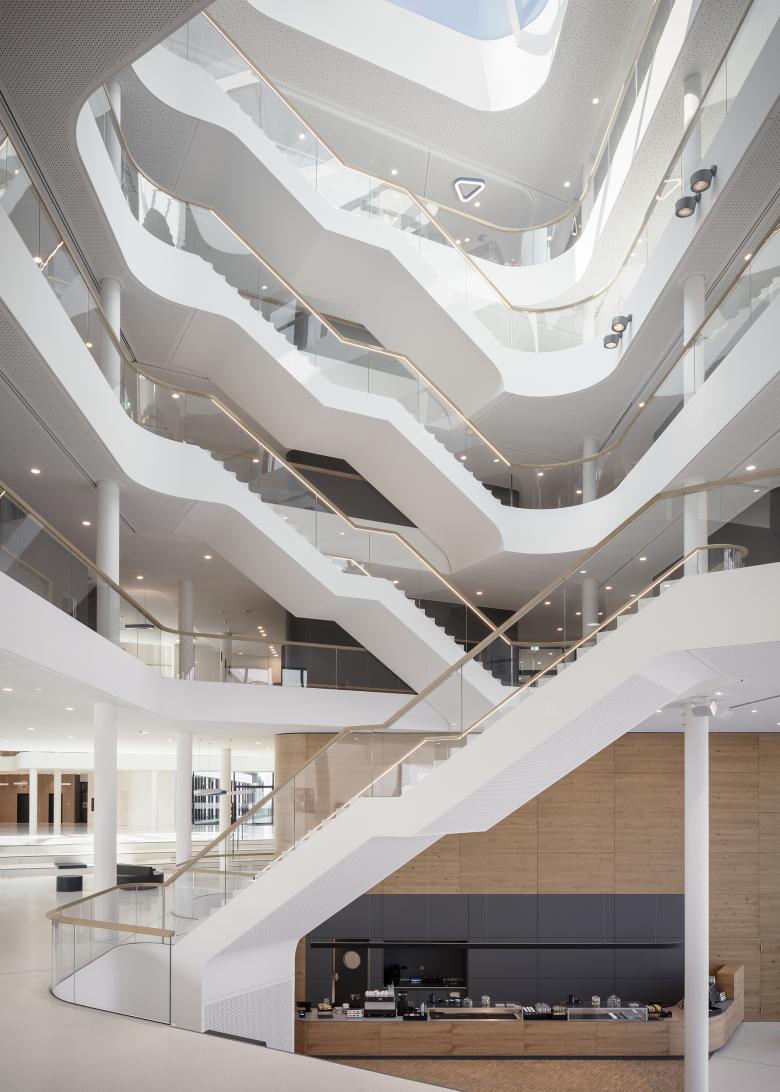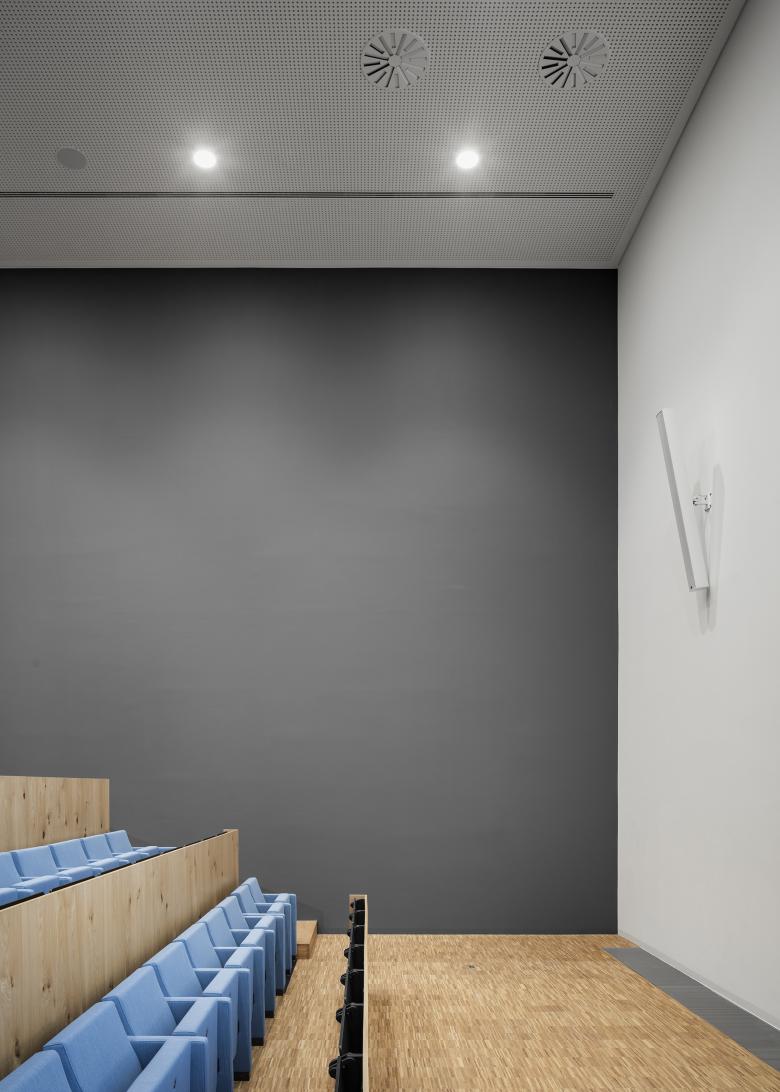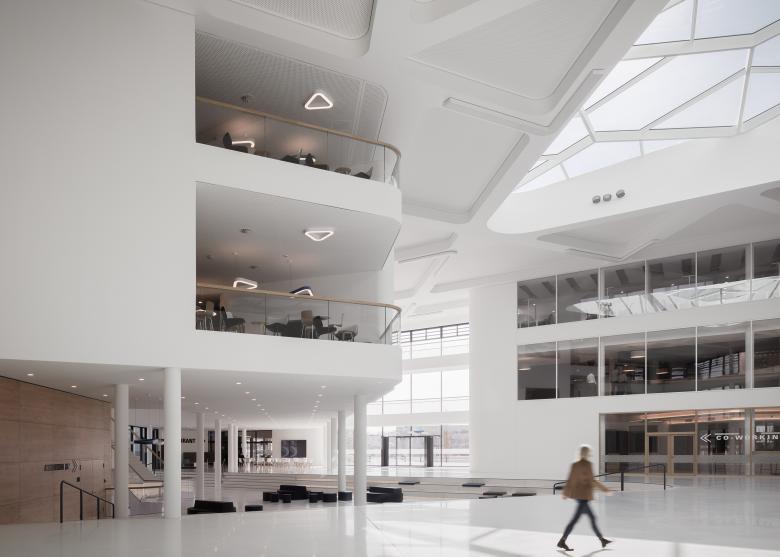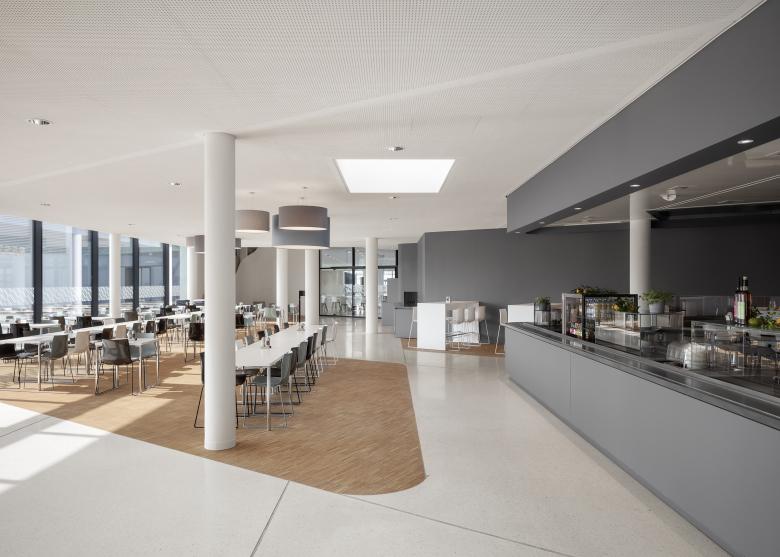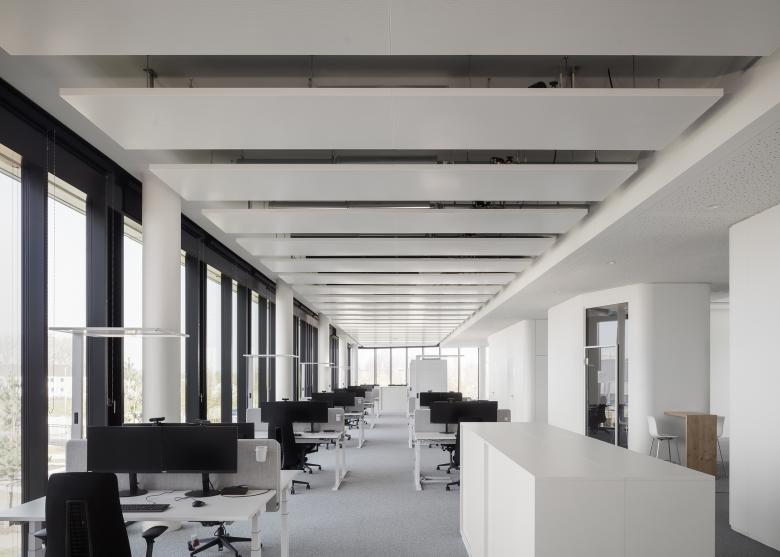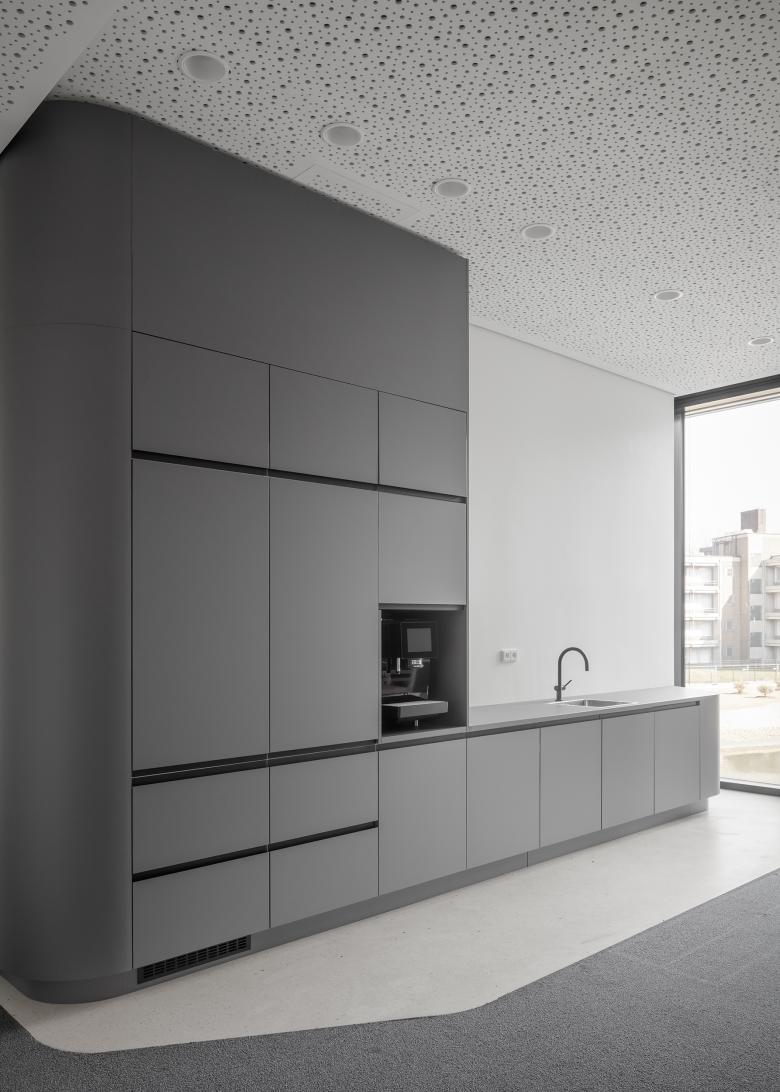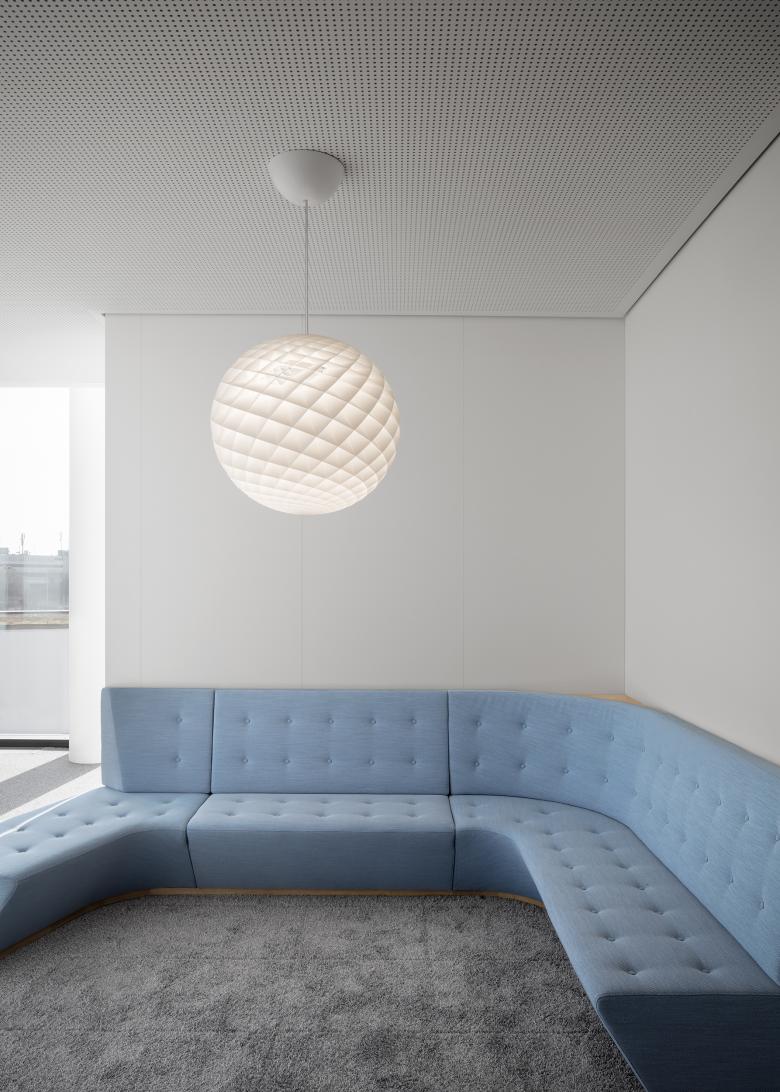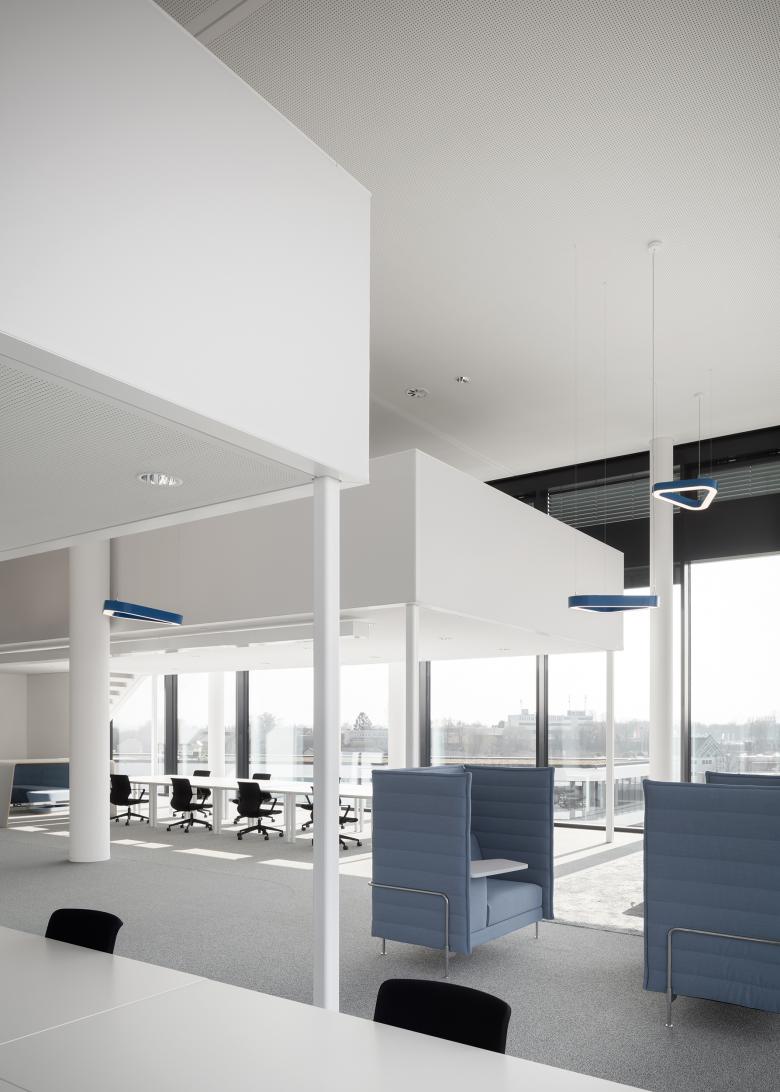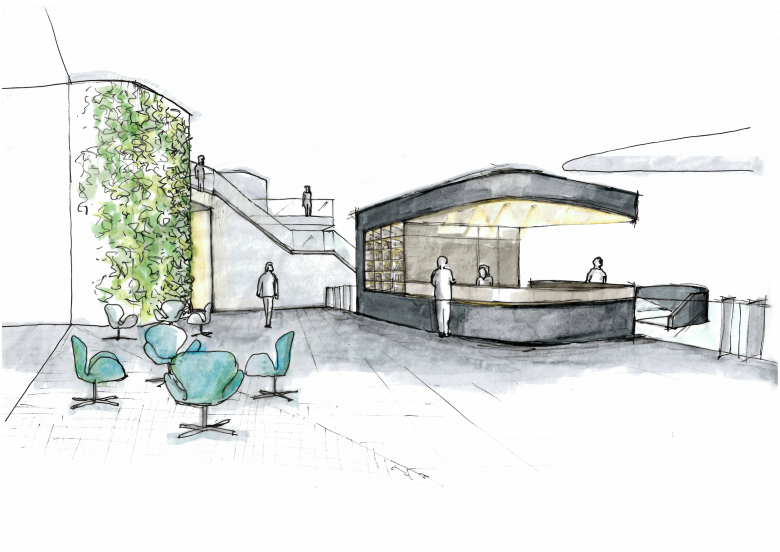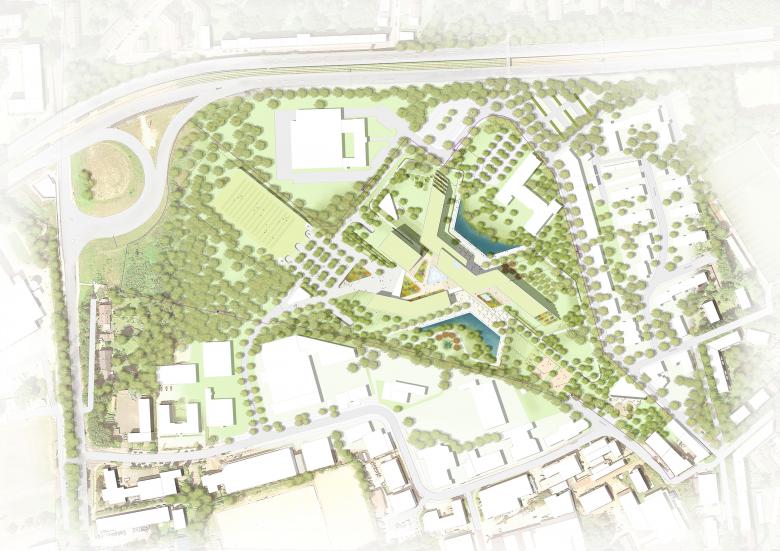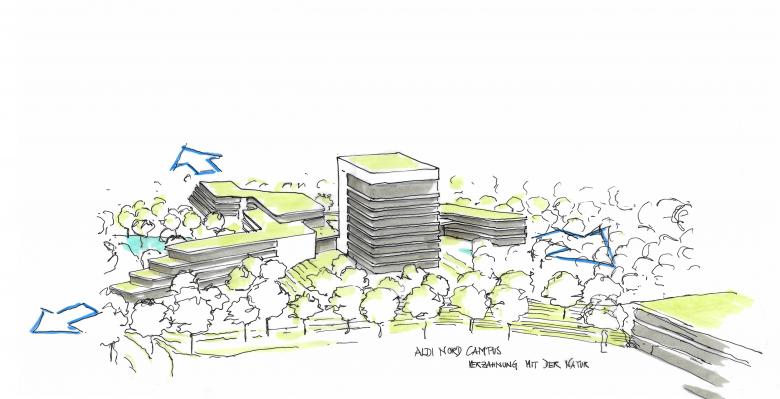ALDI Nord Campus
Essen, Germany
- Architects
- BAID Architektur
- Location
- Eckenbergstraße 16, 45307 Essen, Germany
- Year
- 2022
- Client
- Albrecht KG / ALDI Nord
- Landschaftsarchitektur
- WES GmbH Landschaftsarchitektur
- Bauherrenberatung
- combine Consulting Düsseldorf
- Statik/Bauphysik
- Professor Pfeifer und Partner, Ingenieurbüro für Tragwerksplanung
- Brandschutz
- Ökotec-Gruppe
- Elektrotechnik
- Kleinmann Engineering
- Sanitär, Heizung, Lüftung
- IGF Feldmeier
- Fassadenplanung
- Mosbacher + Roll Beratungs- und Planungsgesellschaft für Fassadentechnik
- Gebäudehülle
- Medicke GmbH
- Objekteinrichtung
- Beck Objekteinrichtungen
BAID Architekten from Hamburg are responsible for the architectural design of the ALDI Nord Campus in Essen-Kray. The new, signet-like administration building of ALDI Einkauf SE & Co. oHG will provide workspace for up to 2,000 employees.
The building complex of around 100,000 square metres was designed by BAID Architekten from Hamburg and is a significant milestone in the corporate history of the Essen-based discount supermarket chain. On an area the size of 14 football pitches, the new building offers an ultra-modern, agile working environment. The new home of ALDI Einkauf in Essen is an important and necessary step into the future for the corporate group as the inventor of discount supermarkets.
Adaptability is essential in retail, especially in an increasingly international and digital world. New working and communication structures that facilitate a fast and open exchange among departments and employees, both external and internal, are reflected in the architecture.
The ALDI Nord Campus consists mainly of open space offices, co-working areas and communication hubs for a wide range of requirements. Among a total of around 1,200 permanent workplaces in the main building, there are fewer than 50 individual offices. A central café and the staff restaurant create a direct link to the extensive park landscape with water basins, herb garden and jogging track, which was designed by WES Landschaftsarchitekten. The office complex is complemented by two multi-storey car parks with a large roof-mounted solar power system, a day-care centre, a porter’s pavilion and a sports pavilion.
BAID Architekten were awarded first prize in the invited architectural competition in 2016, having impressed the jury with their differentiated and elegant architectural vocabulary for ALDI Nord that is visible far beyond the boundaries of the new campus. On terraced levels, the architects arranged the usage units, which are structured by function, in a triangle around the high point of the campus – a seven-storey office tower. With their loosened-up campus design, BAID also responded to the adjacent, small-scale cityscape of Essen-Kray and at the same time developed a new green quarter: around 450 new trees were planted on the campus.
Sustainability and foresight
BAID developed a sustainable architecture for the campus that was awarded Gold certification by the German Sustainable Building Council (DGNB). Decisive sustainability factors are the large PV systems on the rooftops of the car parks, the consistently intensive roof greening of the buildings, the use of geothermal energy via heat pumps, a ventilation concept with heat recovery and an efficient basic provision of heat and electricity for the campus via a district heating connection. Special elements are the two water areas on the campus, which collect the rainwater – also from the roofs – that accumulates on the property. The lakes, which thanks to their design are much more than mere rainwater retention basins, also increase the sojourn quality on the campus and significantly improve the local microclimate.
BAID planned the campus to be as flexible and adaptable as possible. A first extension, which was already included in the competition design, is about to be handed over. From the beginning, BAID designed the architecture to allow for two further expansion stages. Together with the planned conversion of the existing headquarters, there will be space for up to 2,000 employees on the campus.
Inevitable chance encounters
The entire design of the ALDI Nord Campus portrays a contemporary corporate culture in architecture, which focuses on communication and exchange with one another. The large plaza in the centre of the office complex is the beating heart of the new ALDI Nord organism. Around the void, which extends over up to five storeys, the so-called communication hubs provide numerous opportunities for spontaneous meetings. All circulation routes lead across the plaza – everyone inevitably moves through this space. The main entrance to the office complex also leads directly to the central hub.
Construction and design vocabulary
The plaza is column-free and flooded with daylight entering through a huge, filigree glass roof. The most important additional facilities for ALDI employees are directly adjoining this central space: the lecture hall, the staff restaurant and the café. With their oversized sliding glass doors, both catering facilities allow direct access to the stepped outdoor terraces on the two lakes. Between the individual building sections, the plaza with its transparent glass areas opens up towards the park landscape on all sides. Eye-catchers in the plaza are the two vertical green walls, which noticeably improve the microclimate and the acoustics in the generous indoor space. In combination with numerous acoustic measures that include all wall and ceiling surfaces, they also contribute to a pleasant atmosphere. Sophisticated fire protection installations make it possible for all areas to relate to each other with an overall open and generous impression.
The ground plan of the plaza is the defining geometric figure for the entire campus. The signet-like formal vocabulary with rounded triangles or polygons recurs throughout all design elements, from the ground plans of the reception and sports pavilion and the day-care centre, to space-defining elements such as skylights, windows or objects in the buildings. BAID designed the building as a reinforced concrete skeleton structure with a classically modern, horizontally structured façade with ribbon windows and white aluminium elements. The horizontal floor slabs jump out and intensify the linear impression. Floor-to-ceiling window elements with triple insulating glazing ensure optimal daylight yield in the office areas.
The technical and supply services, housed in additional basement levels and designed for extension, is noteworthy. This made it possible to keep the roofscape almost entirely free of building services installations and ensures the connection of further expansion stages.
For the interior design, BAID acted according to the motto “plain and clean”, limiting themselves to comparatively few but durable materials and surfaces: glass, light-coloured walls and ceilings prevail, the offices are fitted with acoustically effective and robust carpeting in various shades of grey, and a light-coloured terrazzo floor was poured in the circulation areas and in the plaza. As a contrast to the enormous dimensions of the open areas, BAID has worked with large-area and, because of the acoustics, micro-perforated wooden surfaces to increase comfort. Furniture and triangular luminaires in the blue CI colour of ALDI Nord are used in specific places to loosen up the design with their decorative colour.
Related Projects
Magazine
-
Building a Paper Log House
1 day ago
-
Building Bridges with Chris Luebkeman
2 days ago
-
Winners of 2024 EU Mies Awards Announced
3 days ago
